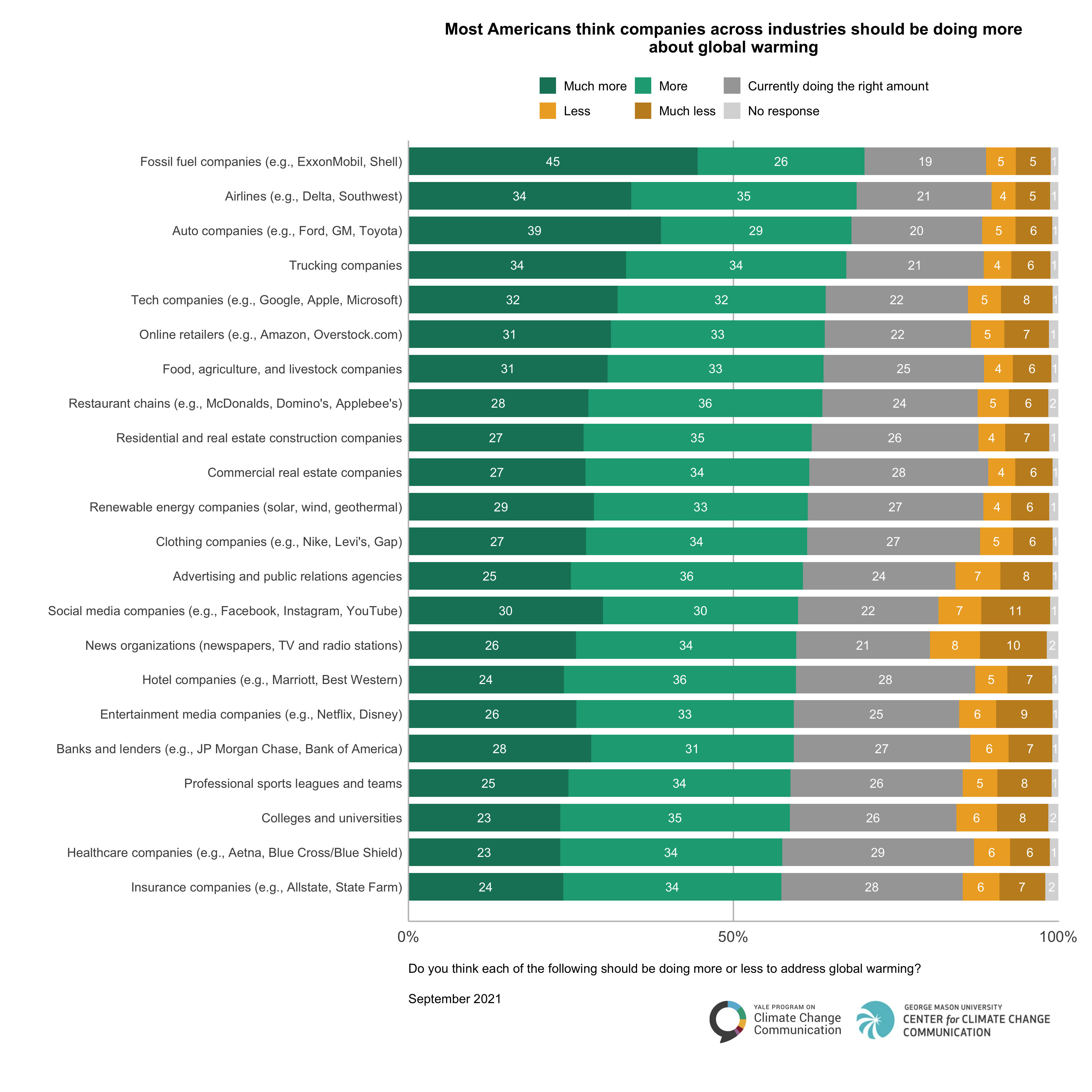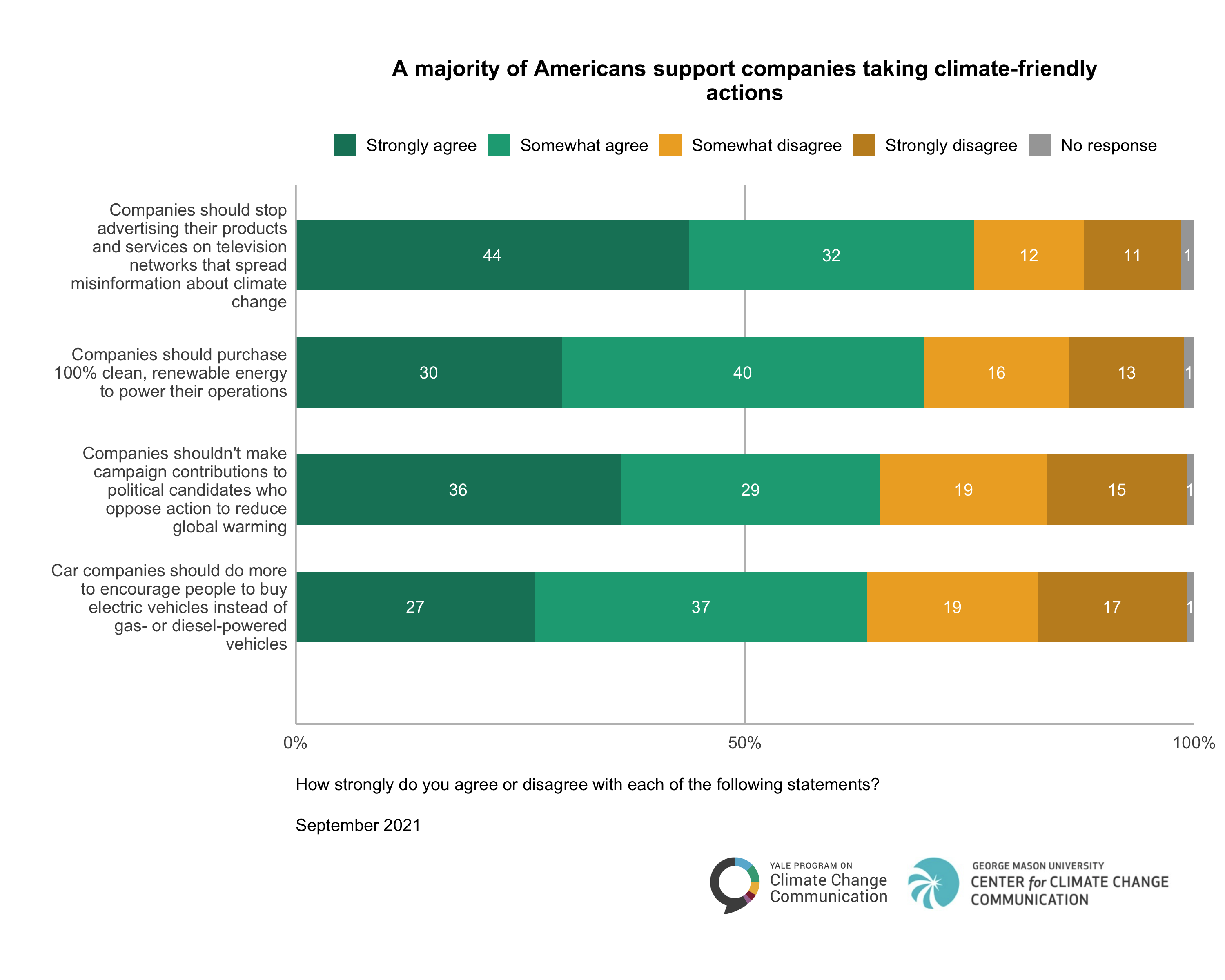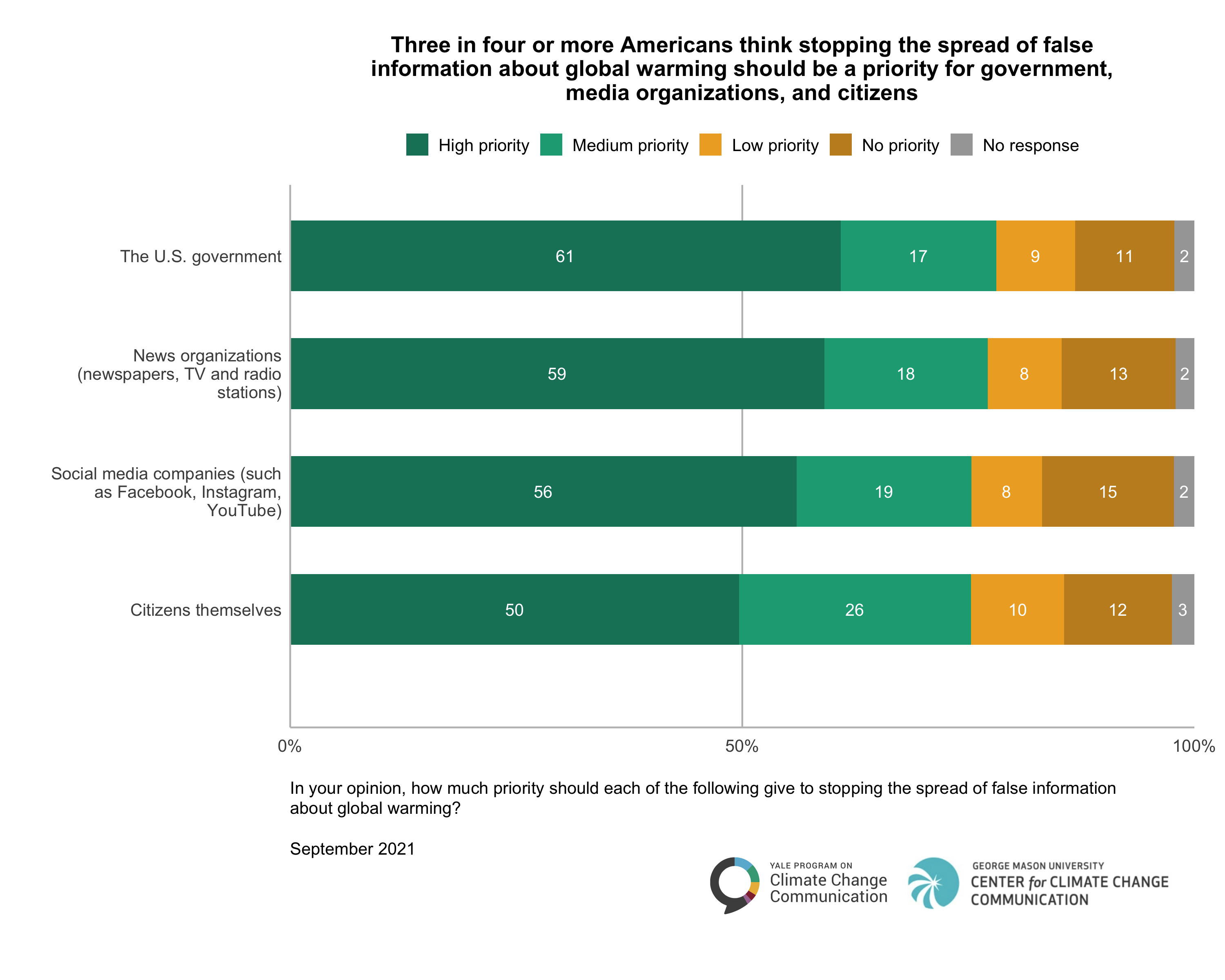Report · Dec 16, 2021
Consumer Activism on Global Warming, September 2021
By Anthony Leiserowitz, Edward Maibach, Seth Rosenthal, John Kotcher, Liz Neyens, Jennifer Carman, Jennifer Marlon, Karine Lacroix and Matthew Goldberg
Filed under: Behaviors & Actions
3. Consumers' Expectations for Industries and Companies
3.1 Most Americans think companies across industries should be doing more about global warming.
Half or more Americans say that each of the 22 industries asked about in our survey should be doing “more” or “much more” to address global warming. Two in three or more say fossil fuel companies (70%), airlines (69%), auto companies (68%), and trucking companies (67%) should be doing more.
In general, only about 10 to 15 percent of Americans say that these 22 industries should be doing “less” or “much less” to address global warming, with highs of 18% saying news organizations and 17% saying social media companies should be doing less. About 20 to 30 percent of Americans say that each of these types of companies are “currently doing the right amount” to address global warming.
3.2 A majority of Americans support companies taking climate-friendly actions.
Most Americans either “strongly” or “somewhat” agree that companies should take various climate-friendly actions. Three in four (75%) say companies should stop advertising their products and services on television networks that spread misinformation about climate change; 70% say companies should purchase 100% clean, renewable energy to power their operations; 65% say companies should not make campaign contributions to candidates who oppose action to reduce global warming; and 64% say car companies should do more to encourage people to buy electric vehicles.
3.3 Three in four or more Americans think stopping the spread of false information about global warming should be a priority for government, media organizations, and citizens.
Three in four or more Americans think stopping the spread of false information about global warming should be either a “medium” or “high” priority for the U.S. government (78%), news organizations (77%), social media companies (75%), and citizens themselves (75%). Only about one in four or fewer Americans think it should be either a “low priority” or “no priority” for each of these groups.


